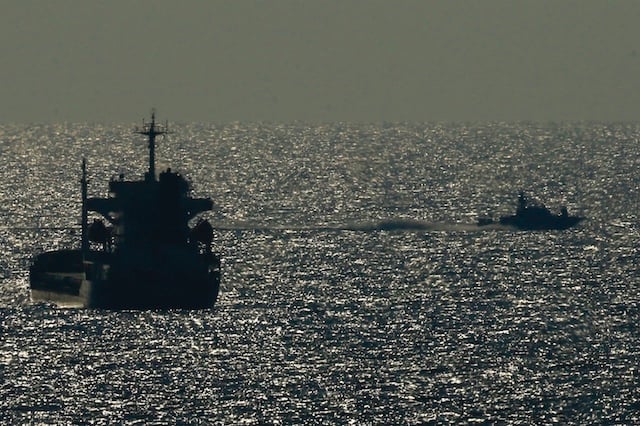Israel provided no immediate explanation for not being present at the session dedicated overwhelmingly to discussion of its policies and alleged abuses, but a source close to the council said its absence clearly amounted to a boycott.
"We won't comment on that," a spokeswoman with the Israeli mission in Geneva told AFP.
The United States was also not present, sparking speculation that its absence could be a sign of the cooling relations between the two allies since it was not there to defend Israel.
But the United States denied that, saying it was US policy not to participate in council debates on a specific agenda item on Israel, which Washington maintains unfairly singles out the Jewish state.
"We remain deeply troubled by this council's stand-alone agenda item directed against Israel, and by the many repetitive and one-sided resolutions under that agenda item," the US ambassador to the council, Keith Harper, said
in a statement.
Monday's session had originally been scheduled to discuss a probe on the 50-day war in Gaza last year, but the investigators obtained a delay after the head of the team quit under Israeli pressure.
"The process cannot be rushed," former New York judge Mary McGowan Davis, who has taken over as head of the team, told the council.
Canadian international law expert William Schabas resigned as chair of the Commission of Inquiry on the 2014 Gaza conflict last month after Israel complained he could not be impartial because he had prepared a legal opinion
for the Palestine Liberation Organization in October 2012.
Schabas strongly denied that he was beholden to the PLO but said he was reluctantly stepping down to avoid the inquiry into the July-August conflict — commissioned by the UN Human Rights Council — being compromised in any
away.
Gaza in 'stranglehold'
Israel was not satisfied, calling for the entire inquiry to be shelved, insisting the commission and the Human Rights Council which created it are inherently biased against the Jewish state.
It is the only country in the world with a special agenda item — known as Item 7 — dedicated to it, meaning its rights record is discussed at every session of the UN's top rights body.
Its absence Monday did not mark the first time it has boycotted the council.
It cut all ties with the council in March 2012 over its plans to probe how Jewish settlements were harming Palestinian rights, and did not resume relations until late 2013.
Monday's session came after Prime Minister Benjamin Netanyahu's right-wing Likud party scored an unexpected election victory last week.
Washington has warned it could withdraw its unwavering support for Israel at the UN over Netanyahu's tough stance on the Palestinians.
But the US denied that its absence Monday was a sign that that was coming to fruition, insisting it did not want to lend Item 7 legitimacy.
A number of states criticized the absence of the United States and most western nations from Monday's debate.
This is "a deliberate attempt to undermine the credibility of the Human Rights Council," said Pakistan's representative, speaking on behalf of the Organization of the Islamic Conference.
Although the report on the 2014 Gaza war investigation was delayed until June, the UN's new Special Rapporteur on the situation in the Palestinian territories did not hold back.
"The ferocity of destruction and high proportion of civilian lives lost in Gaza cast serious doubts over Israel's adherence to international humanitarian law principles of proportionality, distinction and precautions in attack," Makarim Wibisono told the council.
He lamented "acute" needs in Gaza, warning that Israel's continued "blockade keeps Gaza in a stranglehold which does not even allow people to help themselves."
The Gaza conflict ended with a truce between Israel and the territory's Islamist de facto rulers Hamas on August 26th after the deaths of more than 2,140 Palestinians, most of them civilians, and 73 people on the Israeli side, mostly soldiers.


 Please whitelist us to continue reading.
Please whitelist us to continue reading.
Member comments